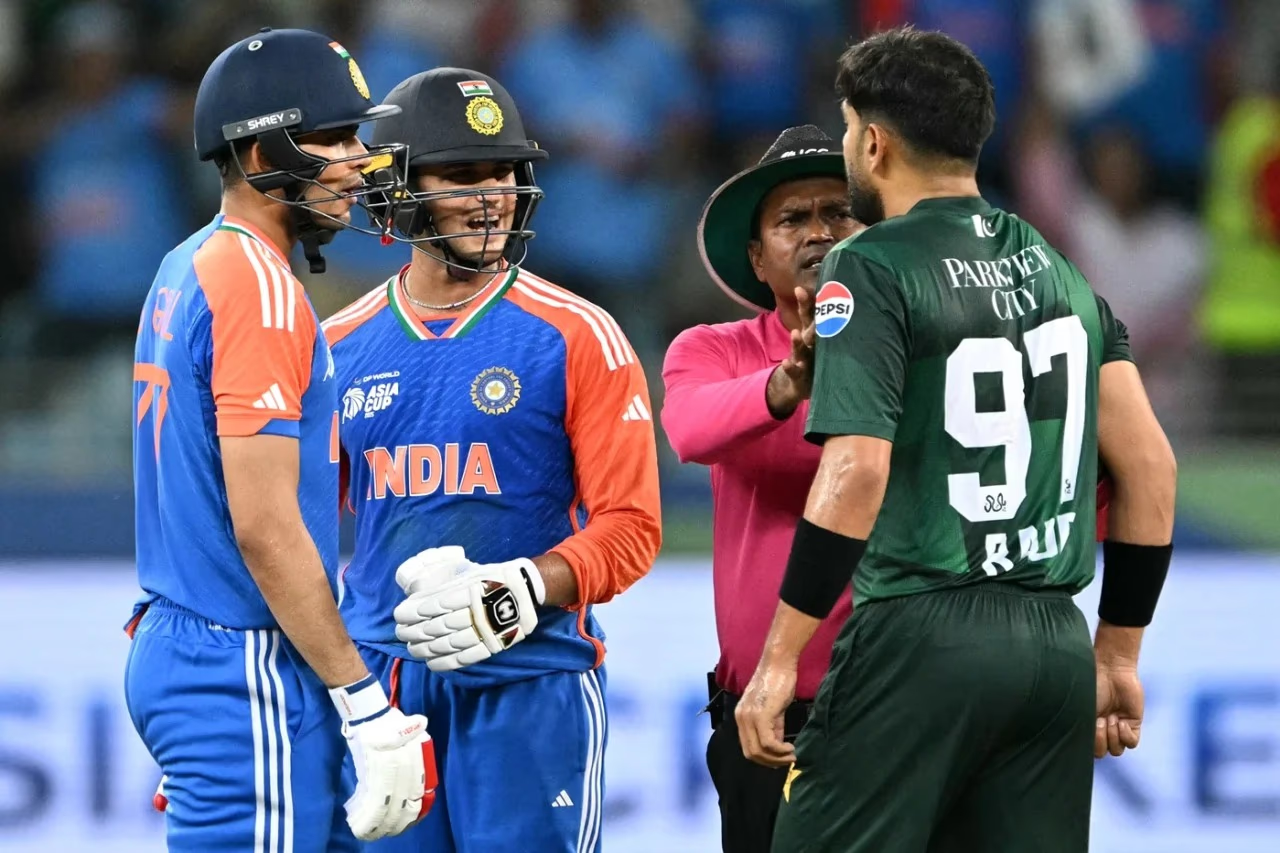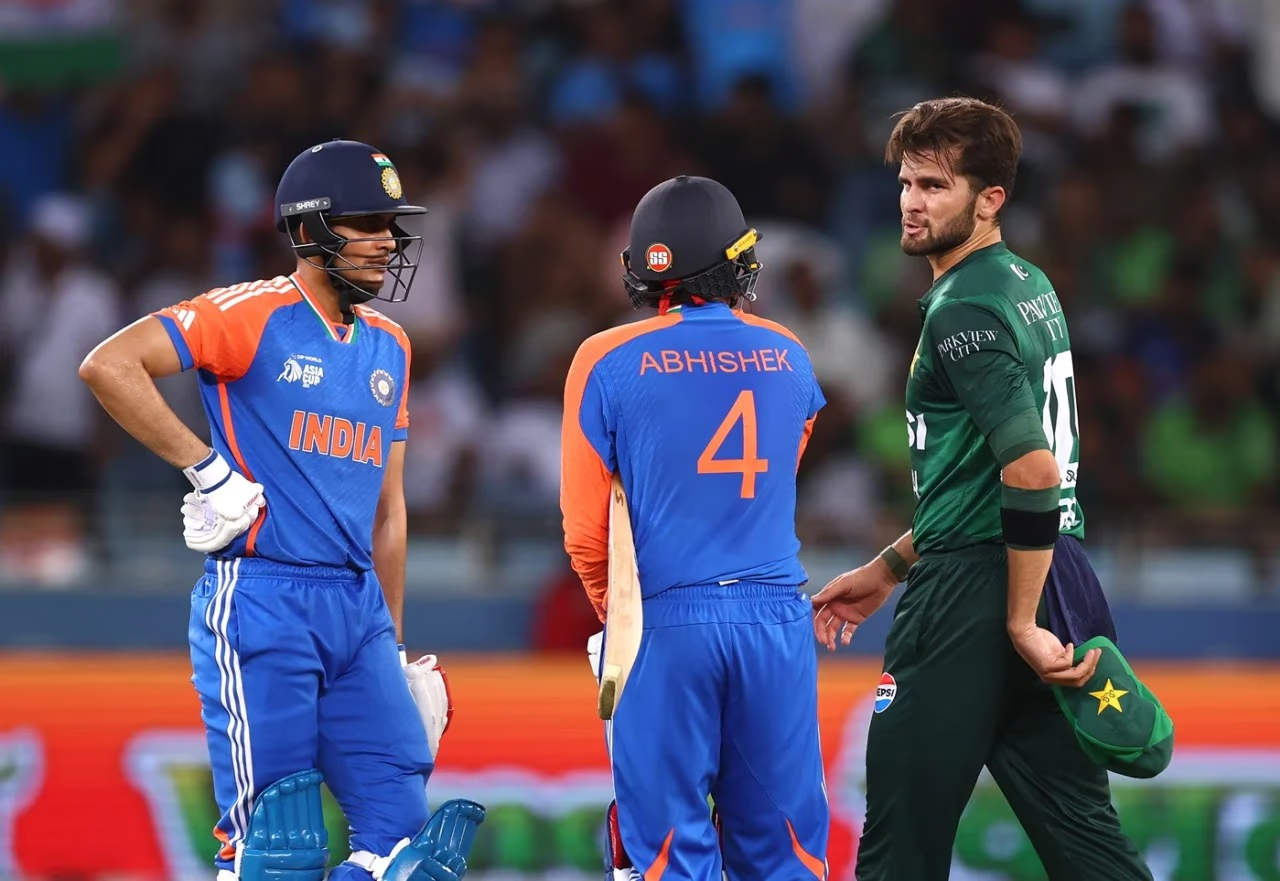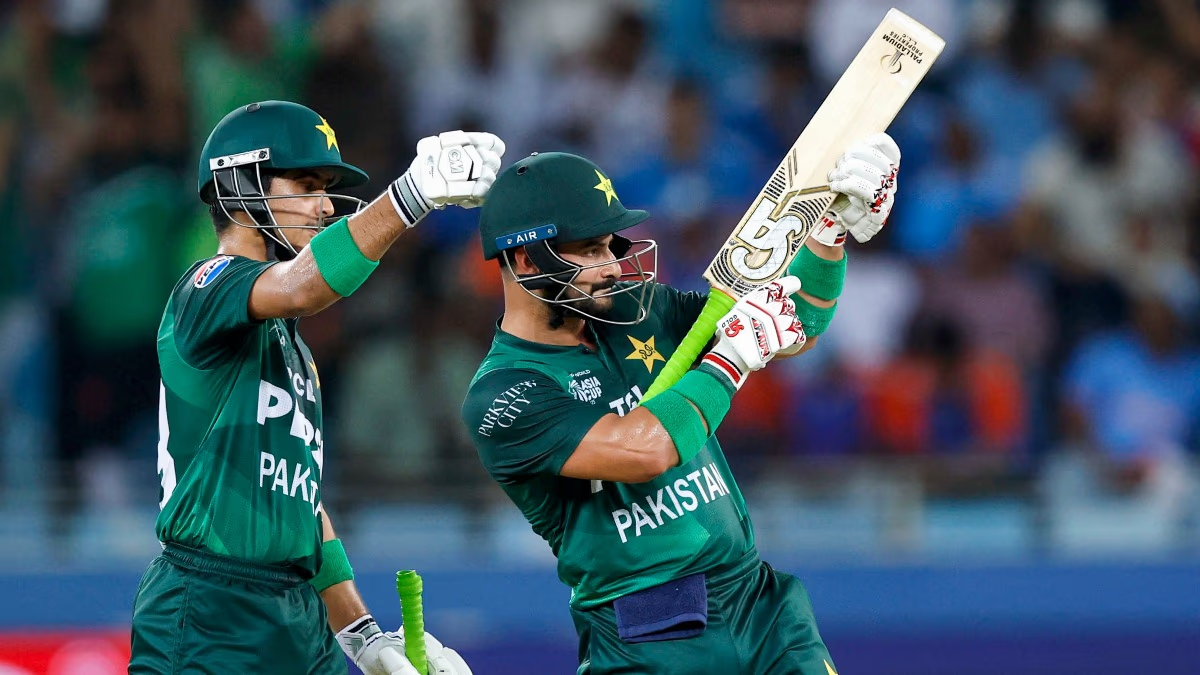On Sunday, during the Super-4 clash of the Asia Cup, India and Pakistan faced off, with India securing a 6-wicket victory. However, the standout moments were not just about the gameplay. It was Pakistani opener Sahibzada Farhan's half-century celebration mimicking shooting with an AK-47 and fast bowler Haris Rauf's provocative gestures towards Indian fans that unveiled a 'Mujahid' mindset within the team. Farhan, after completing his fifty, pretended to shoot an AK-47, while Rauf, reacting to "Kohli, Kohli" chants from the stands, gestured as if shooting down planes with six fingers displayed.
This act symbolized a propaganda reference to the claim of downing six Indian planes during Pakistan’s Operation Sindoor. This display unfolded while Pakistan was seeing a dismal defeat on the field. On Sunday, India claimed its second victory over Pakistan within a week in the Asia Cup 2025 series.
Despite years of sustained defeats on the cricket field against India, Pakistani cricketers have shown little humility. This lack of sportsmanship was apparent on Sunday, with provocative gestures indicating a lack of cricketing spirit. Matches between India and Pakistan have always been high-tension affairs, but the aggressive mindset shown by Pakistani cricketers was a first in this matchup.
Read Also: I do not care... Sahabzada Farhan breaks silence on 'Gun Celebration'
Questions arise on the mentality of Pakistani players
Pakistan is a well-known exporter of terrorism, and the India-Pakistan war in May was initiated by attacks on terror camps during Operation Sindoor. Islamabad is also on the FATF grey list for terror financing. Farhan and Rauf infused this terrorist symbolism into the 'Gentleman’s Game' where India responded with professionalism and balanced aggression, as the sport demands.

Source: aajtak
Abhishek Sharma responded
Abhishek Sharma described his innings as a response to Pakistan's unprovoked aggression. While receiving the Player of the Match award, Sharma said, "They were coming at us without reason, I didn't like it at all. I thought this could be my answer and contribute to the team's victory."
The BCCI and the Indian government faced criticism for deciding to play against Pakistan in the Asia Cup, with many fans questioning the continuation of cricket diplomacy. BCCI Secretary Devajit Saikia mentioned that India had no other options due to the tournament structure. Nevertheless, millions of Indians trusted that cricket would remain just a game. Even India’s Supreme Court remarked that it is merely a sport.
Yet, Pakistani players have blurred the lines of sportsmanship.
Read Also: Sahibzada Farhan gun celebration: Farhan "fires shots" after hitting a fifty, gets shot down by Team India's counter 'bullets'
Pakistan never saw cricket as just a game
Religious overtones have long peppered Pakistani cricket. The 'Mujahid' mindset or 'Jihadi ethos' has infiltrated the game intermittently. When performances flag, this sentiment emerges. In the 2007 World Cup, many players, influenced by Tablighi Jamaat, eschewed training for local religious preaching. Pakistani journalist Syed Muzzamil indicated this disrupted team cohesion and professionalism, prompting the Pakistan Cricket Board to implement rules against religious or political propaganda.

Source: aajtak
Some players have openly embraced the 'Mujahid' identity. Former captain Inzamam-ul-Haq was dubbed 'Sultan of Multan' and also known as 'Mujahid-e-Multan'. He lauded wicketkeeper Mohammad Rizwan for allegedly not allowing non-Muslims close during prayer, declaring him the best captain for this reason.
Inzamam also claimed the Pakistani team invited Indian Muslim players Irfan Pathan, Mohammad Kaif, and Zaheer Khan to their dressing room to listen to Maulana Tariq Jamil's speeches. Harbhajan Singh reportedly considered embracing Islam after hearing such talks, though this is unverified.
Read Also: IND-PAK Match: 'If the boys do some firing…' This 'cheap' Pakistani panelist discussion goes viral!
Pakistan infamous for missionary efforts
In 2014, batsman Ahmed Shehzad was overheard telling Sri Lanka’s Tillakaratne Dilshan on the field that if he converts to Islam, his life thereafter will directly lead to paradise. This unsolicited religious proselytizing displays missionary zeal within cricket.
Mohammad Yusuf, formerly Yousuf Youhana, converted from Christianity to Islam mid-career, later attributing it to religious pressure and atmosphere. Conversely, Hindu spinner Danish Kaneria repeatedly claimed that his religion denied him opportunities and respect, clarifying that competence took a backseat to religious equality.
These incidents illustrate not just deep religious beliefs among the team but aggressive tendencies too.
Sahibzada Farhan and Haris Rauf have brought an aggressive Mujahid mindset onto the field. Cricket has always prided itself on traditions of grace, humility, and fair play. Known as the 'Gentleman’s Game', Farhan’s AK-47 mimicry and Rauf’s plane downing gesture tear at the fabric of sportsmanship. Refusing a handshake is one thing, but simulated acts of war on the field are unparalleled.
Following defeat and unsporting behavior, Pakistani players were ridiculed not just by Indians but by cricket fans worldwide. English umpire Richard Kettleborough tweeted, "Haris Rauf has now become Pakistan’s new 'Field Marshal' following 25-year-old Abhishek Sharma’s assault. It’s as if BrahMos attacked Nur Khan Base at night."
This display unveils the terroristic mentality embedded in every facet of Pakistani society due to military-cleric governance.
Sajid Yusuf Shah from Srinagar congratulated the Indian team while supporting the boycott call, stating, "Personally, I wish we didn’t have to play cricket with these fanatics who've ravaged life and identity in Kashmir Valley during the Pahalgam terrorist attack."
For India, such moments strengthen the argument against continuing cricket ties with Pakistan. Refusing a handshake or sharp words are part of the game, but violent gestures, simulated warfare, and plane-downing charades cross the line. Team India has shown that intensity and rivalry can be maintained without religious or militant overtones.
Pakistan has hundreds of lessons to learn, the foremost being that cricket is a sport, not a war.




